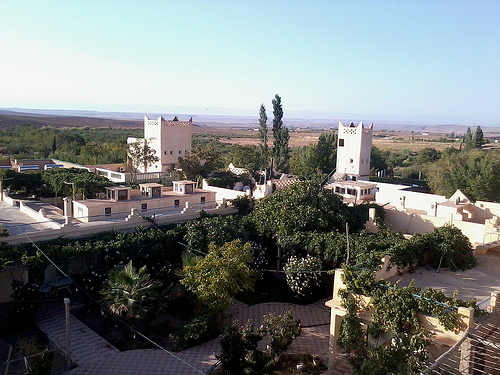Morocco attracts expat professionals from all over the world thanks to its stable and growing economy. Its proximity to Europe and low inflation rates are added benefits.
Some of the main sectors that drive the country’s economy include agriculture, textiles, tourism, construction, energy, and rock mining. Expats with expertise in technology, business management, and communications are also highly sought after. People from the US, UK, Canada, and Australia often work in international schools or English language institutes if they have the adequate certification.Casablanca is home to a majority of the foreigners working in this country. Cities likes Rabat and Tangier also have a fairly large population of working expats.
The employment laws in Morocco are quite modern, having been inspired by the recommendations and conventions of the International Labor Organization.
People from certain countries, including the US, can enter Morocco without a visa. They are allowed to stay on for up to 90 days without a permit. If you don’t need an entry visa it is not mandatory for you to find a job before moving. However, when you apply for a residency visa, adequate proof of income or financial means will need to be submitted. It is therefore best for you to get a job soon after you relocate. To find out if your country has visa exemption for Morocco, visit http://www.moroccanconsulate.com/visa.cfm. If your country doesn’t feature in this list you’ll need to apply for the visa at the Moroccan consulate in your home country.
Finding a job in Morocco and getting the paperwork sorted can be quite a complicated and lengthy procedure. Below are some points and labor laws to keep in mind before you decide to look for or take up a job in Morocco.
Permits and paperwork
In order to start working in Morocco, foreigners must obtain a work permit (attestation de travail) from the National Agency for the Promotion and Employment of Skills (Agence Nationale de Promotion de l’Emploi et des Competences) more commonly known as ANAPEC. The documents required for getting a work permit include:
– Application forms with the appropriate stamps
– Passport copies
– Photographs, passport-size
– Employment contract copy (legalized by the government office)
– Copies of degrees and diplomas
The procedure for obtaining the permits may take several weeks or even months. All applicants are advised to follow up regularly.
Salaries and wages
Morocco does not follow any specific legalized wage control norms except minimum wage. Therefore, employers and employees are free to decide the commercial terms of employment. Employees who draw a “salary” get paid once a month while those who earn “wages” must be paid twice a month.
Contracts
Employee contracts for all foreigners in Morocco must comply with the model contract that has been prepared by the Ministry of Labor. ANAPEC assesses the work contracts of all foreign nationals working in Morocco, to make sure that the terms and conditions conform to the employment laws. This entity also makes sure that foreigners are only hired if a particular vacancy cannot be filled by a Moroccan or a local resident.
Health and safety
Any firm employing more than 50 employees has to offer free medical services to everyone, including foreigners. They can also set up joint medical services with other companies. It is mandatory for all companies to meet the standard safety regulations in this country.
Social Security
In order to get Social Security, all employers have to register themselves as well as their employees with the National Fund. The system is called the Caisse National de Securite Sociale. It is mandatory for all Moroccan employers to participate in the program.
Holidays and paid leave
Most companies in Morocco operate 6 days a week. All employees are entitled to a day off after working for 6 days. Workers, including expats, are entitled to paid holidays calculated as 2 days for each month.
Language
While English is widely spoken all over the country, it is the third language in Morocco. For business purposes, French is mainly used, closely followed by Arabic. All expats hoping to seek a job in Morocco are strongly advised to learn basic French before making the move.
Hours
The working hours for employees working in commercial institutions shouldn’t exceed 8 hours a day, or 48 hours a week. An overtime amount is generally paid to workers who stretch their shifts.
Termination
An employment contract can be of limited or unlimited duration. The latter is usually terminated at the will of either party. All workers are entitled to a 1-month notice period, except in case they are being asked to leave because of a serious offence. Those who have worked with the same organization for more than a year are also eligible for compensation, which is proportionate to their tenure with the company.
Can we improve this article? Something wrong? Let us know in the comments.

